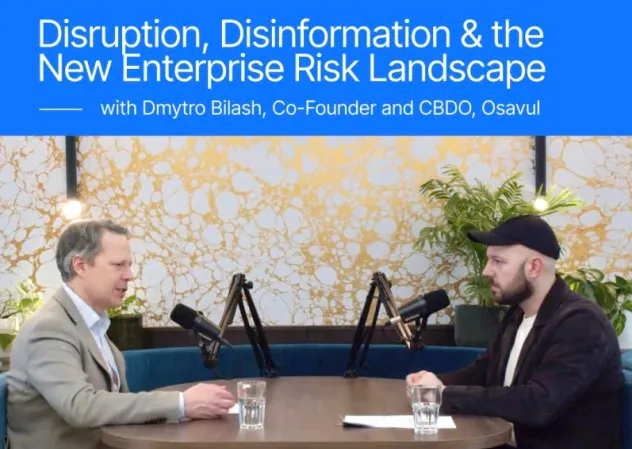According to the Massachusetts Institute of Technology, fake news spreads faster online than real news on legitimate social media and news platforms. It is a global problem. Governments, celebrities, social groups, and institutions can all be targets.
Not only does it “trick” people into trusting sources that aren’t reputable, but it also leads to discourse, both publicly and politically. This can have massive and far-reaching negative impacts on communities across the globe.
The biggest risk comes from fake news that has a political agenda, and there are some major players. Despite the volume coming from Russia and China, fake news from North Korea is more prevalent than any other nation.
One of the biggest concerns when it comes to North Korean fake news is its use as a way to influence international relations, which leads to instability in other nations.
North Korea has used fake news for decades as a way to spread propaganda and commit acts of psychological warfare. The goal of North Korea fake news reports is to create conflict among its adversaries, while also furthering its home political agenda.
Fake news in North Korea is a means to boost the highly secretive country’s image, both domestically and around the world. Most often targeted is its neighbor on the Korean Peninsula, South Korea (officially, the Republic of Korea). Relations between the two countries have not improved since the Korean War (1950-1953). The demilitarized zone instigated in the armistice remains today. As an ally of RoK in the war and since, as well as being the leader of “the West”, the USA is also seen as an enemy.

The Global Problem with North Korea’s Fake News
International relations take the biggest hit from the negative impact of Korean fake news. The primary goal of North Korea fake news is to spread tension and confusion, which results in changes to public opinion, based on false information.
There are several prime examples of high-profile North Korean fake news leading to far-reaching problems.
In 2010, North Korea accused South Korea of sinking a warship, which was false and resulted in an escalation of military activity on the Korean peninsula.
In 2020, the Korea Economic Institute of America reported that in an effort to paint a positive light on food shortages in North Korea, YouTube videos were released showing fake supermarkets, refuting the message and showing that food supplies were meeting demand.
Other North Korean fake news includes repeated claims about its nuclear capabilities, which spread fear and uncertainty far and wide.
The Fake News Strategy of KCNA (Korea Central News Agency)
KCNA (Korea Central News Agency) is the official state news channel in the country, which strictly regulates all media content. It is the central player in the spread of fake news, both inside the country and around the world. It consistently uses propaganda filled with false information and exaggerated attempts to spread damaging misinformation.
This is achieved in several ways by:
Creating stories that paint North Korea in a positive light, while also casting negativity on its rival nations.
Using altered photos and videos to support the spread of misinformation.
Using other media outlets to continue spreading fake news.
Making use of social media platforms to pose and spread lies and misinformation.
Further exacerbating the issue is the question of “Does North Korea have internet?” The country does have internet, but it’s restricted to the government and some overseas visitors. The average North Korean citizen isn’t able to access online content, therefore reducing the risk of fake news being exposed. This is also the biggest clue as to the origin of fake news in North Korea.
Globally, fake news can arise from anywhere, from any organization or splinter group intent on creating havoc but there is only one route in North Korea, and the agenda of the regime is simply malicious.
Main Targets of North Korean Fake News Campaigns
Most of North Korea’s fake news efforts are targeted at specific audiences. However, the effects of these campaigns may spread beyond them and cause damage and harm to other communities and groups.
Top Targets
South Korea - many of the North Korea fake news campaigns target South Korea in a big way. The goal is to undermine their government, which leads to instability in the country, both at the political level and also by causing tension among citizens.
The United States - when North Korea spreads its fake news, its goal is to turn other nations against the United States by making false accusations and creating disharmony among government officials and citizens.
International Organizations - this includes entities like the United Nations, and they are targeted by North Korea fake news in efforts to keep other nations and organizations from upholding accountability in North Korea.
Being aware of how fake news spreads is one way to counteract it and minimize the damage as much as possible. Keep in mind that North Korea's internet access is restricted to foreign visitors and government officials, so it can be assumed that fake news isn’t coming from the average citizen. Now, let’s consider why the above-mentioned countries and organizations are targets.
Target Selection and Impact
The primary reason North Korean fake news campaigns target certain groups is largely due to international relations and the negative impact that misinformation can have. North Korea goes after South Korea as a way to weaken the nation, making its own government stronger. Hindering international alliances is the main reason why the United States is a target. After all, when that happens, it leads to weaker opposition to the policies of North Korea, giving the country a chance to gain and maintain control.
By targeting the United Nations, North Korea works to make the country seem a victim, thereby reducing its accountability. This is dangerous for those targets, but it can also be damaging to other countries. That’s why fighting back to prove the truth about North Korea is so important.
The Importance of Professional Solutions to Fight Fake News
Unfortunately, the very nature of fake news makes it difficult to battle alone. Many organizations and governments are using professional solutions, created specifically for fighting false information and keeping the general public well-informed with accurate and up-to-date details they need to know.
The Need for Specialized Tools and Solutions
Getting to the bottom of fake news often requires specialized software and tools that identify it, allowing action to counteract it. Typical media outlets and social media are simply not designed or equipped to do this job. That’s why experts who understand the nature of fake news and how campaigns are started are valuable individuals to have in your corner as you fight fake news campaigns by North Korea.
Introduction to Professional Solutions like Osavul
When you need the big guns, you need Osavul and our solution for North Korea fake news detection. Our platform is especially created to find and counteract fake news, from North Korea and elsewhere. Using our software gives you access to premier algorithms and machine learning that discover misinformation and find out where it came from, so you can take action to stop its damage and its spread.
How These Solutions Work and Their Effectiveness
Osavul does the big task of scanning online, looking for content that is an anomaly or that shows a pattern indicating fake news. When it’s identified, those involved are sent alerts, which gives them the chance to take counteraction right away.
The sooner false news is proven to be incorrect, the less potential damage it causes. Osavul software also does data analysis and produces reports that give stakeholders details about the impact that fake news can have. This is effective because the sooner you can detect false news and take corrective action, the lower the risk of detrimental and devastating damage.
This is valuable in that it takes a lot of time and effort out of the hands of individuals, providing full-time scanning and real-time alerts, no matter what time of day or night a threat is detected.
Conclusion
Fake news that comes from North Korea is frightening, as its primary goal is to destabilize by creating discord and conflict on a global scale. To fight it, understanding the impact and origin, coupled with Osavul software tools, allows countermeasures to combat the spread of false news, minimizing its damage at the same time. It’s vital to stay vigilant in the battle against North Korean fake news, bringing truth to the forefront every time.











